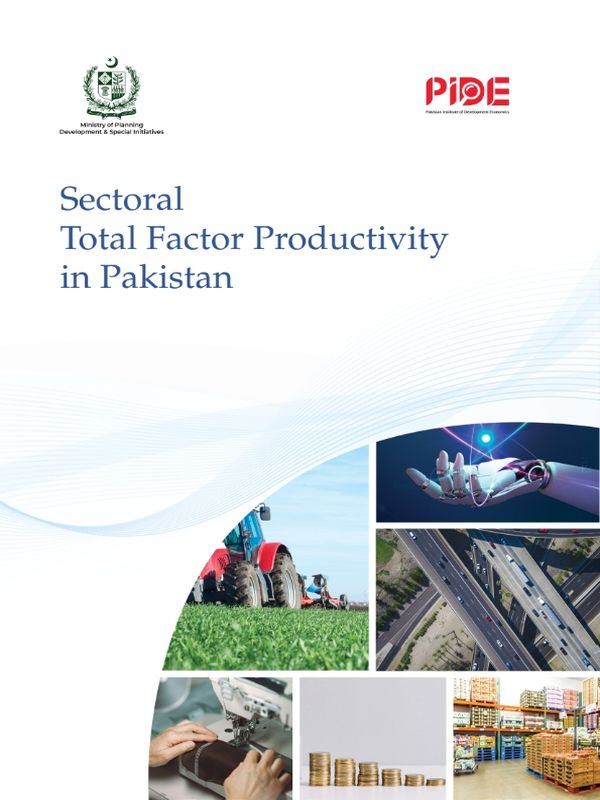Sectoral Total Factor Productivity In Pakistan
Preface
Arguably, productivity is one of the key building blocks for global competitiveness. Evidence suggests that total factor productivity growth is positively correlated with GDP growth. As Pakistan continues to search for high and sustainable export-led growth, it is crucial to keep sight of the most critical denominator of the objective: productivity – its significance in the recipe for growth remains unmatched.
We are well aware of the challenges faced by Pakistan; economists have spoken at length about the twin deficits and elevated debt levels, whose roots probably intertwine with the country’s productivity structure. Reasons for Pakistan’s boom and bust cycles would surely identify low productivity as one of the culprits of the inconsistent growth path besides highlighting it as one of the causes for the country’s myriad engagements with the International Monetary Fund (IMF). Perhaps the national desire to maintain a consistent and stable macroeconomic environment may only be possible if the “business model” of the economy is structurally appropriate to grow and generate resources to maintain manageable debt levels and keep current and fiscal account balances in check.
If Pakistan is to grow and aspires to follow the path of export-led growth, then it becomes relevant to understand, as minutely as possible, where we stand today in terms of total factor productivity growth vis-à-vis various sectors, including export-oriented sectors which compete at the international level. This endeavor is an attempt to contribute to limited research and data in the area of sectoral total factor productivity and has been worked upon with the expectation that it can be used by policymakers to make informed decisions on how to support sectors as we embark on our journey to seek export-led growth and develop a more stable macro-economic environment.
If we are not competitive globally, we cannot export, which switches off one of the key engines of foreign currency contributors to the economy. With circa one-third of total debt denominated in foreign currency, the country is, therefore, pressed to take on large foreign currency budgetary support loans in the name of development: the importance of productivity is just not only confined to being competitive but also has the potential to shake the foundations of our macro-economic environment and the development process as well.
As the team culminates this initiative, I would like to thank the honorable Minister for Planning, Development & Special Initiatives (MoPD&SI), Professor Ahsan Iqbal and Secretary, MoPD&SI, Mr. Syed Zafar Ali Shah for their ardent support for the effort. I would also like to offer special words of appreciation for Dr. Jehanzeb Khan, ex-Deputy Chairman, Planning Commission (currently Special Assistant to the Prime Minister on Government Effectiveness), for his sage guidance and Mr. Hamid Yaquoob Sheikh, ex-Secretary, MoPD&SI (currently Secretary, Ministry of Finance), for helping the Planning Commission in the endeavor. The support provided by the Chairman, the Securities Exchange Commission of Pakistan ought to be recognized as well.
I would like to thank Dr. Nadeem ul Haque, Vice-Chancellor, PIDE, and partners at the Pakistan Institute of Development Economics (PIDE) who have spearheaded this initiative. I am also thankful to Mr. Gonzalo Varela, Senior Economist World Bank Islamabad, for his valuable comments on the study during the workshop held at the Planning Commission, which helped improve the study; also grateful to all other participants of the workshop who provided useful insights.
I hope that potential derivations of the study are viewed with an open mind, both by the public and private sector representatives and that we, as a nation, refocus improvement in productivity as a core pillar of Pakistan’s economic charter in times to follow.
Asim Saeed
Member, Private Sector Development & Competitiveness Planning Commission
Ministry of Planning, Development and Special Initiatives, Islamabad
For Full Text Download PDF




